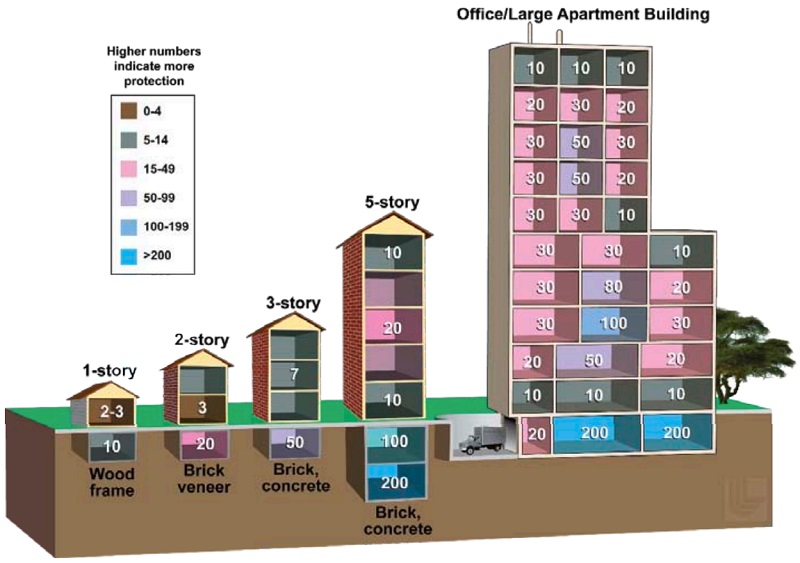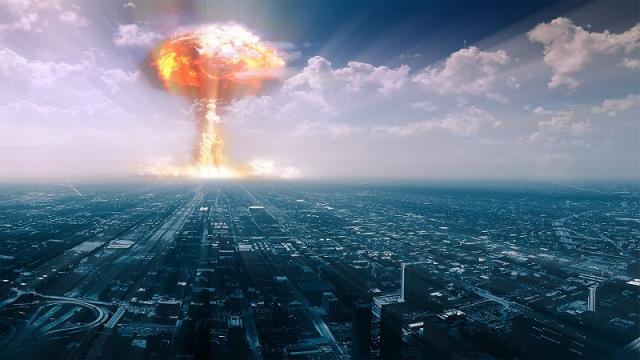This is advice I hope you never need but should know anyway. A nuclear attack is everybody’s worst nightmare, and the immediate aftermath is just as bad, if not worse, than the explosion itself. Here’s what you should do if you survive the initial blast.
MORE: North Korea will pursue ‘acceleration’ of nuclear and missiles programs, including first-strike capability, ICBM development – envoy https://t.co/yKzmjctja6
— Reuters World (@ReutersWorld) March 21, 2017
You’ll know a nuclear bomb went off near you if there’s a sudden flash of bright, white light, which may or may not give you flash blindness if you’re within 80km or so of ground zero. If that bright, white blindness eventually clears up, and you don’t suddenly feel at peace, you’re alive. Other signs of a nuclear blast include near instant first-degree to third-degree burns if you’re within 16km or so and, of course, the trademark mushroom cloud looming over the skyline.
As soon as you realise what’s happening, researcher Michael Dillon, from the Lawrence Livermore National Laboratory, suggests you find shelter immediately in order to escape nuclear fallout. In his report for the journal Proceedings of the Royal Society A: Mathematical, Physical and Engineering Sciences, Dillon recommends hiding within the most dense building material possible. The thicker the better.
For example, sturdy brick or concrete structures that lack windows, or heading underground to a cellar, basement or sub-basement. Hiding in such a place will expose you to just 1/200 of the fallout radiation you’d be exposed to outside. Obviously, an actual bomb shelter is ideal, but most people aren’t near those. This FEMA graphic, recently shared by Business Insider, gives you an idea of good places to go:

Wooden structures, like most houses and smaller one storey buildings, won’t do much good against fallout radiation, unfortunately. Is it better than nothing? Kind of, but Dillon recommends you move to a better location if possible. If you can dash to a more dense, protective shelter in about five minutes of exposure, go for it. If getting there would take longer, say up to 15 minutes of exposure, stay where you are for at least an hour, then make your move. A good portion of the intense fallout radiation will have subsided by then, reducing your exposure a bit.
While you wait in your dense, thick-walled shelter, the EPA suggests you stay away from any doors or windows, take a shower or wipe down exposed parts of your body with a wet cloth, and ditch your now-contaminated clothing. Stick your contaminated clothing in a plastic bag, seal it off, and get it far away from you and others. While you shower, use shampoo and soap, but do not scrub or scratch your skin. And do not use hair conditioner, as it will bind radioactive material to your hair. Once clean, blow your nose, then wipe your eyelids, eyelashes, and ears to remove any leftover material.
Lastly, make sure you only drink bottled water and eat food from sealed containers until a rescue team can get to you. As you wait, listen to the radio to stay up to date on where you can find help and get screened for contamination.
This story has been updated since its original publication.

Comments
9 responses to “Where To Hide If A Nuclear Bomb Goes Off In Your Area”
Just duck… and cover.
Wait for rescue team? If a bomb hits where I live, the rescue teams will all be dead, the government will clear out the town leaving us to fend for ourselves.
Cool, but I am far more interested in learning how to ensure that I die in the first blast of any nuclear war.
I agree… Although I live in New Zealand so pretty removed from most somewhere that will get nuked (hopefully)
Yep. Rather I’m vaporised that try and eek out a pathetic existence in my cancerous body until I starve to death.
Hello Guam, are you reading this ?
Keeping my power armor charged and ready. 😉
See you get it
I remember seeing this PSA video from the cold war era demonstrating a family having a picnic protecting themselves from a nuclear blast by covering themselves with the picnic blanket.
Hilarious shit.
I came here for the comments section!